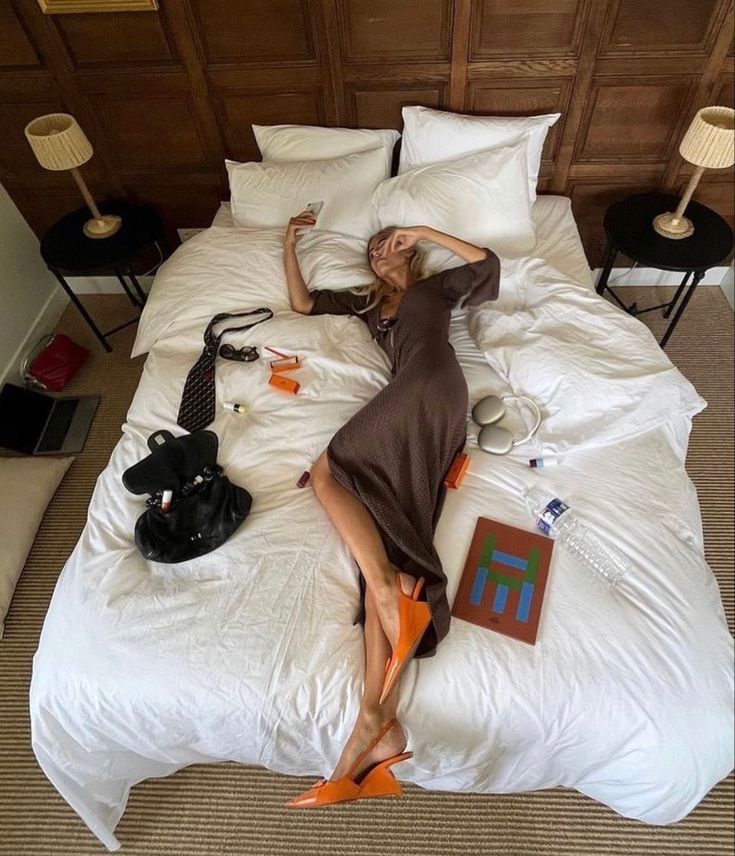
Sleepmaxxing: When ‘Optimizing’ Sleep Becomes Its Own Pressure
By Uooshy Editorial
“Even rest can feel like a performance — if you forget it’s meant to hold you, not improve you.”
The Rise of the Sleep Olympics
Scroll through TikTok and you’ll find it: a perfectly dimmed bedroom, silk pillowcases, magnesium mocktails, mouth taping tutorials, and a $400 sleep tracker that promises to “decode your REM cycles.” Welcome to Sleepmaxxing — the 2025 wellness obsession where even rest is optimized, tracked, and measured.
For a generation that grew up with hustle culture and burnout badges, sleep — once the ultimate escape — has become the next frontier of self-optimization. But as “perfect sleep” becomes the new performance metric, many are beginning to ask: have we taken the wellness thing too far?
When Wellness Turns Into Work
It started innocently enough — a podcast on circadian rhythm, a viral video about blue light, a brand promising the “eight-hour glow.” But for many women, what began as a caring ritual turned into another pressure point.
“I used to love winding down,” says Maya, 28, a content strategist in Austin. “But now, even resting feels like a checklist. Did I journal? Take my magnesium? Avoid screens? Track my HRV? I go to bed anxious about being calm enough to sleep.”
This paradox — stress about rest — has become the new quiet epidemic. It’s what psychologists are calling performance rest, a state where our nervous systems are so conditioned to productivity that even relaxation becomes a task to master.
According to a 2025 Sleep Foundation survey, nearly 58% of millennials report anxiety around not getting “enough quality sleep.” Ironically, that anxiety is one of the top disruptors of sleep itself.
The Myth of Perfect Rest
The truth? Sleep isn’t a discipline to dominate — it’s a relationship to nurture.
Dr. Caroline West, a neuropsychologist specializing in sleep behavior, explains: “Your body knows how to rest. The issue is trust. When we constantly monitor, measure, and optimize, we send the message that rest must be earned, not received.”
Apps and gadgets can help, she adds, but only if they support awareness rather than control. “If your data makes you dread checking it every morning, that’s not wellness — that’s surveillance.”
This realization is fueling a quiet backlash. The new “sleep girlies” of TikTok are posting videos of messy sheets, half-finished routines, and imperfect nights — reminders that the body’s wisdom doesn’t need a data dashboard.

Reclaiming Sleep as Sanctuary
To reclaim rest, many are turning away from the algorithm and back toward intimacy — with themselves, with quiet, with slowness.
That means creating space, not systems.
Lighting a candle not because it “activates melatonin,” but because it feels soft.
Crawling into bed not at an exact biohacked hour, but when your soul says enough.
Sleep, in its most natural form, is an act of surrender. It’s the one place where you don’t have to curate, perfect, or prove.
The most powerful shift? Choosing comfort over control.
The Energy of Ease
We tend to think of sleep as the opposite of productivity — but what if it’s actually the foundation of it?
Studies from the National Institute of Mental Health show that proper rest improves emotional regulation, empathy, and creative problem-solving — all qualities that modern women are rediscovering as part of a gentler success model.
As Lauren Ross, founder of Uooshy, puts it:
“Sleep isn’t something to conquer — it’s something to come home to.”
This idea — that rest is both radical and restorative — resonates deeply with a generation realizing that wellness without compassion is just another form of work.
Soft Rituals Over Rigid Routines
If you’re craving a gentler relationship with rest, start small. Uooshy’s editors and wellness experts suggest these simple, non-performative rituals:
- Dim, don’t darken. Let lighting transition naturally instead of shutting everything off instantly. Your nervous system responds better to gradual cues.
- End the audit. Stop checking how many hours you’ve logged. Instead, ask, How does my body feel this morning?
- Create a comfort corner. Whether it’s a pillow, scent, or playlist, choose what makes you feel safe — not optimized.
- Honor fatigue as feedback. Being tired isn’t failure. It’s your body whispering that it’s been holding too much.
These rituals are less about achieving perfect sleep and more about creating emotional permission to let go.

The Uooshy Future of Rest Is Feminine
Maybe the new luxury isn’t tracking your REM cycle — it’s trusting it.
The wellness world is slowly awakening to a softer philosophy: that true vitality comes not from control, but from allowing. And for millennial and Gen Z women — raised on metrics, hustle, and aesthetics — this is both a challenge and a calling.
To rest is to rebel.
To slow down is to reclaim space from systems that demand constant optimization.
And to sleep — deeply, imperfectly, unmeasured — might just be the most radical act of self-love we have left.
